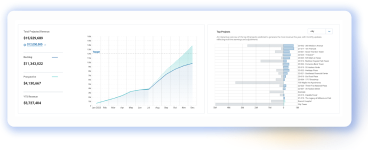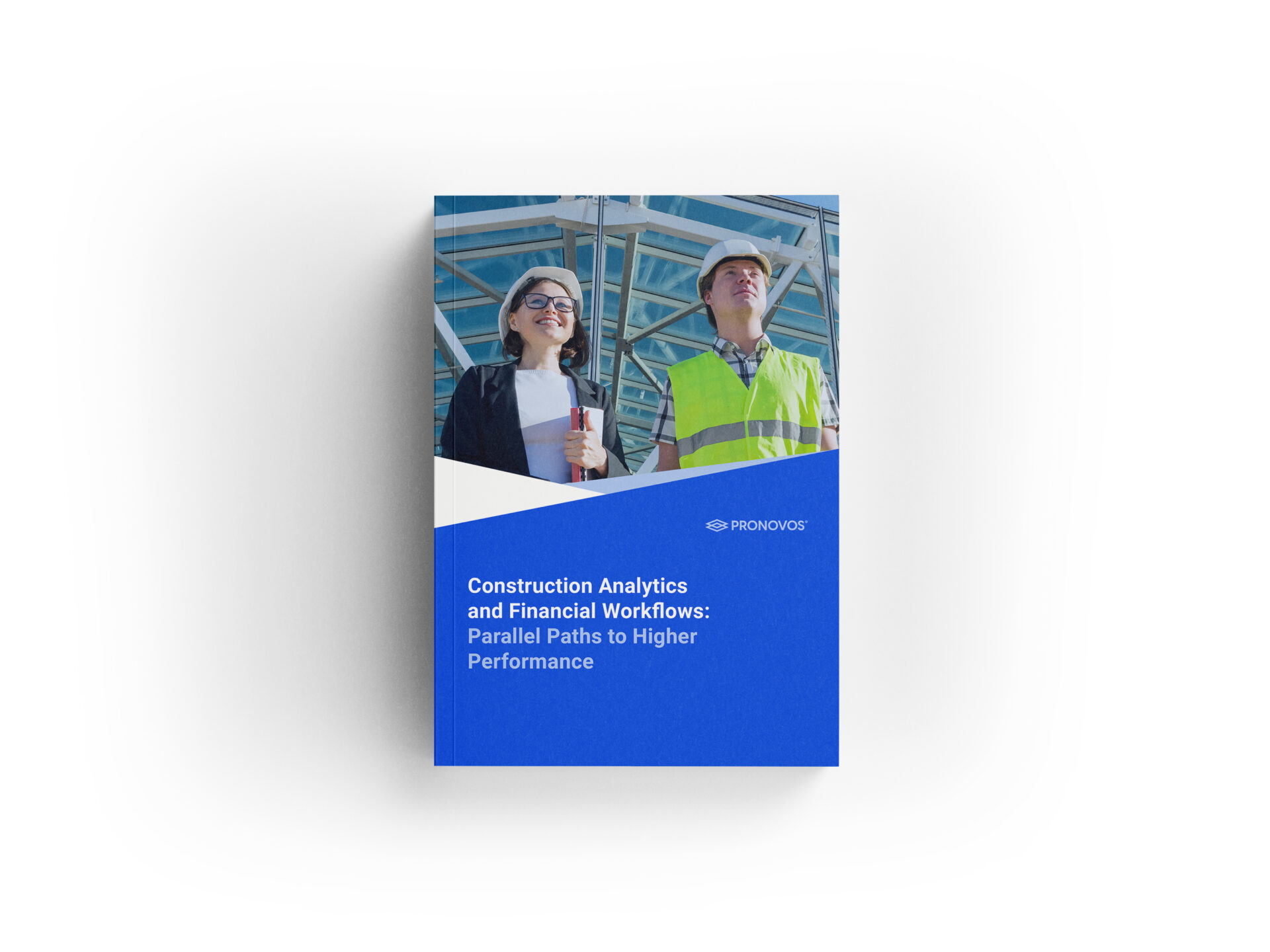The following eBook describes the parallel paths to achieving greater efficiency and stronger profit margins through utilizing financial workflows and real-time dashboards.
What you will find in the eBook:
- An in-depth look into the benefits of financial workflows and real-time construction analytics dashboards
- How to use data-driven insights to educate project managers, superintendents, and others who are responsible for projects and budgets
- Common metrics and KPIs in construction that revolve around financial performance, from the company down to project level
- How to use automated data flow to eliminate headaches with manual data entry, excel & spreadsheet overload, and working out of multiple systems

